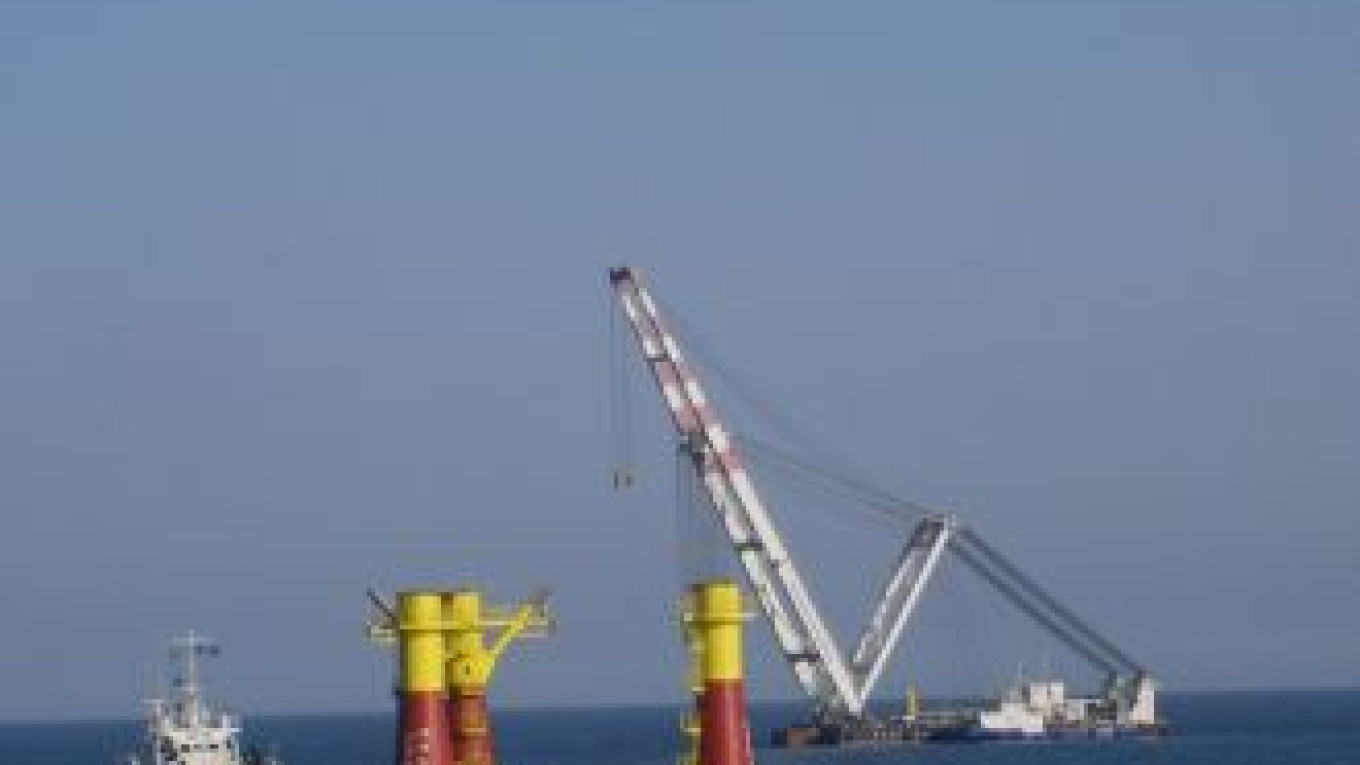ST. PETERSBURG — LUKoil is hoping to fully replace its reserves over the medium term and is looking to acquire new assets to achieve this including in the Middle East, its head said Friday.
LUKoil president Vagit Alekperov said the oil major was looking for an annual average reserve replacement ratio of 100 percent "or slightly higher" over the next 10 years.
"In Russia, there are a lot of assets; we are interested in assets in the Middle East," he said.
He spoke a day after the company revealed that it had struggled to fully replace its resource base. According to Reuters calculations, LUKoil, Russia's second-largest crude producer, replaced only 84 percent of its reserves in 2010.
Last year, its oil production also fell, by about 1 percent to 96 million tons on greater depletion in West Siberian brownfields.
But Alekperov said the company could achieve the full replacement target.
"I'm sure that we, like in previous years, will be able to compensate [output with new reserves] thanks to new discoveries, acquisitions, technologies," he said.
Alekperov also said LUKoil was looking to increase its marketing presence and was building a 350,000-ton reservoir park near Barcelona to supply the Spanish market with diesel and gasoline shipped in by tankers.
"We hope to round up the construction this year," he said.
Alekperov also said LUKoil had not decreased oil output in Egypt, despite political unrest in the country.
"We haven't cut oil output in Egypt; we just evacuated families of the staff. Personnel is still working on platforms."
According to the latest LUKoil data, its output in Egypt in 2009 totaled about 2 million barrels. The company is also increasing its exposure to Western Africa.
In an interview with Reuters in October, LUKoil's vice president said output would continue to decline within the country and that nearly all production increases would come from foreign assets, including those in Africa and Iraq.
Meanwhile, LUKoil, barred from leading projects on the Russian shelf, signed agreements to explore for oil and gas in Romania's Black Sea waters.
A venture owned by LUKoil and Vanco International signed concession agreements with Romania to explore and develop two offshore blocks, LUKoil said in a statement Thursday. The Est Rapsodia and Trident blocks lie in water at depths of 90 meters to 1,000 meters.
LUKoil is expanding outside Russia as strategic laws limit projects off the Arctic, Pacific and Black Sea coasts to state-controlled companies. The producer, which is also exploring with Vanco off Ghana and Ivory Coast, has the highest overseas output among its Russian peers.
The venture, owned 80 percent by LUKoil and 20 percent by Vanco, will seek to identify structures and then hold talks with Romania on drilling terms, Grigory Volchek, a spokesman for LUKoil Overseas, said by phone. A three-dimensional seismic study will be performed to assess the structures, according to the statement.
Exploration in Black Sea waters off Turkey and Romania are among regions that will bear "higher risks" and also offer "higher potential," ExxonMobil senior vice president Mark Albers said in January. Exxon also is seeking to explore Russian Black Sea resources with state-run Rosneft and may invest $1 billion under an accord signed in January.
LUKoil is considering a proposal from the Ukrainian government to develop blocks in its sector of the Black Sea where resources have already been found, Volchek said.
Vanco Prykerchenska, a Black Sea oil exploration partnership including Vanco in Ukraine, is currently seeking to resolve a dispute with the Ukrainian government over a revoked license to explore off the coast of the Crimea.
"It is still early days for any definitive outlook on the Black Sea's prospectivity," Julia Nanay, a senior director at the Washington-based consulting firm PFC Energy, said by e-mail.
LUKoil produces oil from Russia's section of the Caspian Sea, which has not been included in the country's strategic offshore laws.
(Reuters, Bloomberg)


